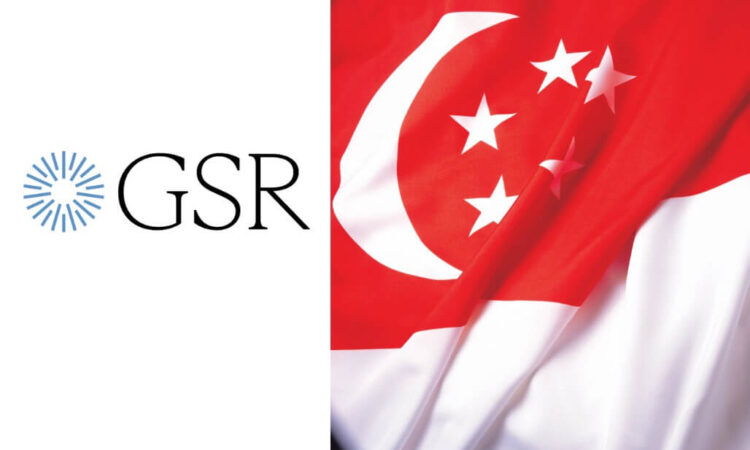
TLDR
- Global cryptocurrency trading firm and liquidity provider, GSR, has received in-principle approval from the Monetary Authority of Singapore (MAS).
- Singapore’s regulatory clarity and favorable environment for crypto and blockchain developers have made it an attractive hub for crypto exchanges.
A global cryptocurrency trading firm and liquidity provider, GSR, has received in-principle approval from the Monetary Authority of Singapore (MAS) for a Major Payment Institution (MPI) license. This significant development will allow GSR to establish its presence in the Singapore market further and use it as a base for expanding investments in the region, as well as promoting the adoption of web3 technology, as stated in an official statement.
The announcement follows the recent granting of a full Major Payment Institution license to Coinbase by MAS, nearly a year after Coinbase received its in-principle approval.
GSR receives in-principle approval
The global cryptocurrency trading firm expressed its pride in meeting the admission requirements set forth by the Monetary Authority of Singapore (MAS) and is actively working towards obtaining a full license in Singapore. GSR Group CEO Jakob Palmstierna conveyed gratitude to MAS for their constructive oversight, which has played a pivotal role in shaping a thriving digital asset ecosystem, one that GSR is proud to be a significant part of.
GSR Group COO Xin Song added that the company is delighted to be recognized as one of the pioneering firms in their category to receive in-principle approval from a globally respected regulator like MAS. Song praised MAS for providing a clear framework for digital asset utility, enabling GSR to strengthen its local client partnerships and maintain its crucial role as a liquidity provider within the ecosystem.
GSR also reaffirmed its dedication to expanding its presence in Singapore, utilizing it as a central hub in the Asia-Pacific region to invest in entrepreneurs across the area and promote the adoption of Web 3.0 technologies. With a decade of experience as a liquidity provider and active, multi-stage investor in the digital asset market, GSR offers a range of services, including OTC Trading, Derivatives, and Market Making. The company is deeply integrated into every major sector of the digital asset ecosystem, collaborating with token issuers, institutional investors, miners, and leading trading platforms.
Singapore is becoming more attractive to crypto exchanges
Coinbase received in-principle approval from MAS in 2022, having entered the Singaporean market in July 2015 in accordance with local crypto regulations. However, with the recent Major Payment Institution approval, Coinbase is now permitted to offer its complete range of services to users in the country.
With this license, Coinbase now stands alongside other crypto companies that hold full licenses, showcasing Singapore’s dedication to nurturing a dynamic and well-regulated digital assets ecosystem.
In June, Crypto.com was granted an MPI license by MAS, allowing the company to explore the market. Similarly, USDC stablecoin issuer Circle and Blockchain.com have also received full licensing in Singapore.
In addition to regulatory clarity provided by MAS, Singapore’s attractiveness to crypto and blockchain developers has been further fueled by perceived geopolitical risks in Hong Kong, where increasing influence from Beijing is a growing concern.
While Singapore has been receptive to crypto exchanges, some other countries have been more cautious. Gemini, a prominent cryptocurrency exchange based in New York, has announced its intention to temporarily halt its cryptocurrency services in the Netherlands. This decision stems from the exchange’s inability to meet the stringent regulatory requirements set by the Dutch financial authority, De Nederlandsche Bank (DNB).
Meanwhile, the crypto market is awaiting the MiCA guidelines for crypto assets, which are based on existing EU rules for securities trading that will go into effect next year. Any company looking to offer crypto services within the EU will need authorization from one of the EU’s 27 national financial regulators.
Disclaimer. The information provided is not trading advice. Cryptopolitan.com holds no liability for any investments made based on the information provided on this page. We strongly recommend independent research and/or consultation with a qualified professional before making any investment decisions.






